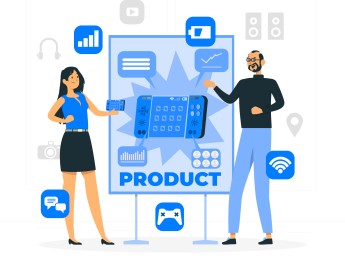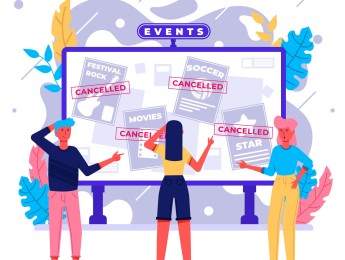Meetings are necessary in all business areas. They help deliver messages, ensure everyone is on the same page regarding process development, and pitch new ideas to partners and stakeholders to gain funding.
When holding a productive meeting, it’s essential that you cater to all of the individuals present and provide the information in various learning styles to ensure everyone understands and remembers your message. It’s also a good idea to set an agenda ahead of time to provide each attendee with expectations to manage the time well. This shows that you’ve thought carefully about the intention of your meeting and builds trust in your brand or message.
To properly cater to each individual in attendance, you must also consider the location and facilities available. Is the message something you can deliver remotely in an online meeting? Or is it face-to-face, where you may need to provide refreshments to maintain your audience’s attention and increase motivation?
It’s also worth considering whether you deliver a difficult message and how to impart the information without causing distress or upset. Finally, it’s essential that everyone in the meeting can clearly understand and hear your message, so techniques in body language and projecting your voice are also important to appear professional and get a positive outcome.
Upon completion of this course, participants will be able to:
- Appreciate how important body language is when holding a meeting.
- Create motivating agendas that leave your audience in eager anticipation.
- Anticipate the learning and communication needs of all attendees.
- Create accurate and effective meeting minutes and an action plan.
- Pitch products and processes which reflect your brand.
- Develop your negotiation techniques.
- Increase your confidence in public speaking.
- Generate ideas for multi-channel learning.
This course is designed for anyone who throws events for training, announcement, or stakeholder purposes. It would be most beneficial for:
- Event Managers
- Business Owners
- Directors
- Account Managers
- Hospitality Managers
- Operations Managers
- Project Planners
- Planning Managers
- Sales Directors
- Customer service Personnel
This course uses various adult learning techniques to aid full understanding and comprehension. Participants will develop effective meeting minute templates and agendas to get the most out of their meetings and conduct role-playing exercises to explore the power of body language and voice projection.
Participants will also work in groups to determine the best activities to ensure the meeting is memorable, motivating, and exciting to gain buy-in and secure project funding.
Day 5 of each course is reserved for a Q&A session, which may occur off-site. For 10-day courses, this also applies to day 10
Section 1: Developing Your Strategic Meeting Plan
- Uncovering your event goals.
- Your sustainability and contingency plan.
- Selecting the right speakers.
- Invites and mutually beneficial relationships.
- Creating a strategic meeting agenda.
Section 2: Your Financial & Risk Management Plan
- Planning for risks.
- Relocating or health and safety issues.
- Planning within a budget.
- How to make your event seem expensive on a budget.
- Making the meeting memorable.
- Provide evidence of meeting requirements to show benefits.
Section 3: Stakeholder Management
- Planning to negotiate.
- Have room for movement.
- Anticipate your stakeholder’s requirements.
- Learn to meet in the middle but stay strong.
- Listing your plan’s benefits to reach a positive outcome.
- Manage stakeholder relationships using strict contracts but with a friendly and approachable attitude.
Section 4: Delivering a Message
- Approach appropriate key speakers.
- Plan out the message beforehand.
- Hiding difficult messages between positives for a better reception.
- Learning styles and how to use them.
- Make your event memorable with fun activities.
Section 5: Event Design & Location
- Discussing event size to determine location.
- Remote vs. face-to-face events.
- Refreshments within budget.
- Facilities management and cleanliness.
- Seating and sound options to ensure full visibility and audio success.
- Health and safety procedures and event location layout.
- On-site communications for contingency.
Section 6: Marketing Your Meeting or Event
- Open invite or invitation-only - who do you plan to invite?
- Marketing your event - social media, billboard, or internet advert.
- Event promotion and feedback.
- Asking for constructive feedback to make future improvements.
Upon successful completion of this training course, delegates will be awarded a Holistique Training Certificate of Completion. For those who attend and complete the online training course, a Holistique Training e-Certificate will be provided.
Holistique Training Certificates are accredited by the British Assessment Council (BAC) and The CPD Certification Service (CPD), and are certified under ISO 9001, ISO 21001, and ISO 29993 standards.
CPD credits for this course are granted by our Certificates and will be reflected on the Holistique Training Certificate of Completion. In accordance with the standards of The CPD Certification Service, one CPD credit is awarded per hour of course attendance. A maximum of 50 CPD credits can be claimed for any single course we currently offer.
- Course Code MG2-136
- Course Format Classroom, Online,
- Duration 5 days













